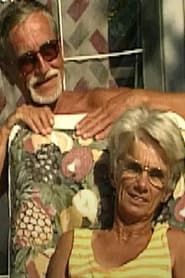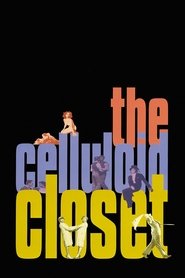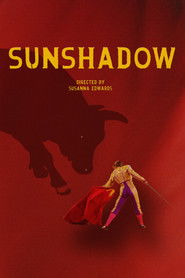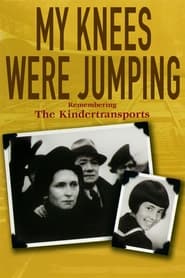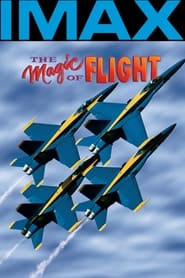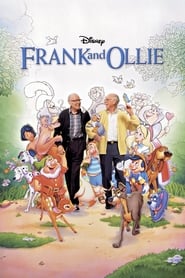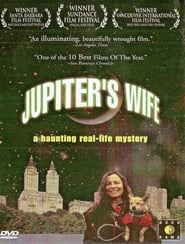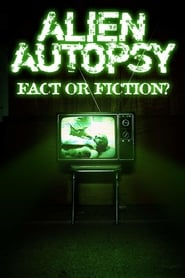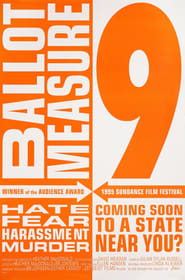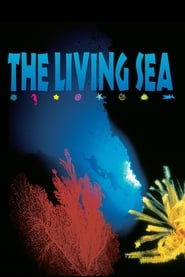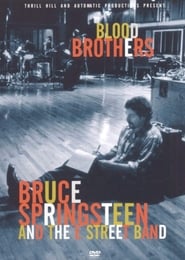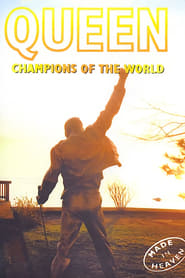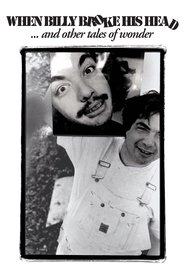New Documentary Movies on Apple iTunes - Page 431
-
Stunder av lycka
1996
Stunder av lycka
1996
A documentary about the caravan campers of Tofta Södra, Gotland, Sweden. A high dose of swedish summer. -
A Little Fish in Deep Water
1996
Lake Tanganyika is an 'Ocean' in Africa. Millions of years ago it was colonized by a little fish called 'Cichlid'. Otters, crocodiles, cobras and cormorants all hunt the fish in clear water. How the Cichlid survived and evolved is an incredible story for, millions of years later, there are over 200 new species - all found only in Lake Tanganyika. Incredibly, they have evolved to look like coral reef fish. There are cichlid equivalents of tuna, snapper, gobies and goatfish. They have evolved bizarre methods of breeding with mouth-incubation, lekking and, unique amongst fish, there is even a cuckoo. Despite all their specialization over millions of years, if an opportunity presents itself, the little fish can behave like their unspecialized ancestor. In the climax of the film, they bang together to feast on a hatch of sardine fry. This is the story of how one little fish has conquered a lake. -
The Celluloid Closet
1996
The Celluloid Closet
1996
star 7.1Exuberant, eye-opening movie that serves up a dazzling hundred-year history of the role of gay men and lesbians have had on the silver screen. Film contains fabulous footage from 120 films showing the changing face of cinema sexuality, from cruel stereotypes to covert love to the activist triumphs of the 1990s. -
Sunshadow
1996
Sunshadow
1996
Susanna Edwards' follows Christina Sanchez, Spain's most successful female bullfighter, in this intimate, intense documentary about what it means to be a woman in a male-dominated sport. -
My Knees were Jumping: Remembering the Kindertransports
1996
Survivors recall the 1938-39 rescue of children from concentration camps in Germany, Poland, Austria and Czechoslovakia. -
George Carlin: George's Best Stuff
1996
star 7.6George's Best Stuff is a compilation of Carlin's legendary routines, including "A Place For My Stuff," "Dogs and Cats," Vitamins," "Baseball and Football," "Losing Things," "Al Sleet the Hippie-Dippie Weather Man," the notorious "Seven Words You Can't Say on Television," and many more. A great collection of some of the best standup comedy ever performed. -
The Magic of Flight
1996
The Magic of Flight
1996
star 6.7Take a technological thrill ride The Magic of Flight takes you on a technological thrill ride faster, higher and wider than modern science or even your imagination! Relive the first flight of the Wright Brothers, then soar with the Blue Angels as they defy the laws of gravity. Narrated by Tom Selleck. -
Frank and Ollie
1995
Frank and Ollie
1995
star 7.4Before computer graphics, special effects wizardry, and out-of-this world technology, the magic of animation flowed from the pencils of two of the greatest animators The Walt Disney Company ever produced -- Frank Thomas and Ollie Johnston. Frank and Ollie, the talent behind BAMBI, PINOCCHIO, LADY AND THE TRAMP, THE JUNGLE BOOK, and others, set the standard for such modern-day hits as THE LION KING. It was their creative genius that helped make Disney synonymous with brilliant animation, magnificent music, and emotional storytelling. Take a journey with these extraordinary artists as they share secrets, insights, and the inspiration behind some of the greatest animated movies the world has ever known! -
From Danger to Dignity: The Fight For Safe Abortion
1995
The film weaves together two parallel stories: the evolution of underground networks that helped women find safe abortions outside the law, and the intensive efforts by activists and legislators to decriminalize abortion through legislative and judicial channels. This film combines rare archival footage with interviews that document the courageous efforts of those who fought to break the silence, change the laws and end the shame which surrounded abortion when it was a crime. The film is the second of the Abortion Rights Film Trilogy. -
Stormchasers
1995
Stormchasers
1995
star 6Track monsoons, hurricanes, blizzards, and tornadoes. Take a journey around the planet to experience our most extreme storms and to witness the dramatic--and often perilous--efforts of scientists in the pursuit of understanding weather.Join meteorologists in the cockpit of a P-3 weather plane as they penetrate the eye of a hurricane; and in the tense, decisive moments on the road as they focus their radar on an approaching tornado, traveling to the heart of severe storms to learn what makes weather systems tick. Experience the bumpy ride into the sudden and spectacular calm of a hurricane’s eye, or the commando-like raid to the very brink of a killer tornado, and experience one of the elemental joys of doing science: that of confronting nature head-on to divine its awesome secrets. -
Jupiter's Wife
1995
Jupiter's Wife
1995
star 7.1Michel Negroponte, a documentary filmmaker, meets Maggie one day in Central Park. Maggie claims to be married to the god Jupiter and the daughter of actor Robert Ryan. Michel gets to know Maggie over the next couple of years, and attempts to use her often outlandish stories as clues to reconstruct her past. -
Alien Autopsy: (Fact or Fiction?)
1995
star 5.8This provacative FOX Network "prime time" television special investigates the purported "Alien Autopsy" footage that was allegedly filmed by the United States military after the legendary UFO crash near Roswell, New Mexico in 1947. -
The Rolling Stones: Totally Stripped
1995
star 7Totally Stripped is a newly revised version of the documentary that was originally made to coincide with the release of The Rolling Stones Stripped album released in November 1995. It tells the story of the two studio sessions and three live shows that made up the Stripped project on 4 Blu ray discs. This followed the conclusion of the mammoth Voodoo Lounge tour and found The Stones reimagining tracks from their back catalogue in pared back versions alongside a couple of carefully chosen covers in the studio and doing smaller scale club gigs to showcase these versions, which was a marked contrast to the huge arenas and stadiums that had hosted the Voodoo Lounge tour. This new version of the documentary includes previously unseen footage and lays bare the inner workings of both The Rolling Stones and of some of their best loved tracks. Revealing, intimate and moving, Totally Stripped is unmissable. -
Ballot Measure 9
1995
Ballot Measure 9
1995
star 1Ballot Measure 9 was an anti-gay amendment proposed to Oregon voters in 1992 by the conservative group, Oregon Citizen's Alliance. This documentary goes behind the scenes of the fight to stop Measure 9. It contains portions of anti-gay videos produced by the Citizen's Alliance as well as news clips and interviews with the people who successfully fought passage of Measure 9. -
Anne Frank Remembered
1995
star 7.7Using previously unreleased archival material in addition to contemporary interviews, this Academy Award-winning documentary tells the story of the Frank family and presents the first fully-rounded portrait of their brash and free-spirited daughter Anne, perhaps the world's most famous victim of the Holocaust. -
Brian Wilson: I Just Wasn't Made for These Times
1995
star 6.7I Just Wasn't Made for These Times is a documentary about the life of Brian Wilson, the musical mastermind and songwriter for the Beach Boys. The film examines the ups and downs of Wilson's life, including the early years of the Beach Boys, his years of substance abuse, and his long road to recovery. -
The Living Sea
1995
The Living Sea
1995
star 7.1The Living Sea celebrates the beauty and power of the ocean as it explores our relationship with this complex and fragile environment. Using beautiful images of unspoiled healthy waters, The Living Sea offers hope for recovery engendered by productive scientific efforts. Oceanographers studying humpback whales, jellyfish, and deep-sea life show us that the more we understand the ocean and its inhabitants, the more we will know how to protect them. The film also highlights the Central Pacific islands of Palau, one of the most spectacular underwater habitats in the world, to show the beauty and potential of a healthy ocean. -
Blood Brothers
1995
Blood Brothers
1995
star 7.8This documentary highlights the reunion of Bruce Springsteen with his E Street Band as they join forces to record several new tracks for Springsteen's GREATEST HITS album. Featured songs include longtime bootleg favorite "This Hard Land" and the brand-new songs "Secret Garden" and "Blood Brothers," as well as other previously unreleased tracks. The show aired originally on the Disney Channel. The documentary provides a thrilling behind-the-scenes look at Springsteen's creative process, which is famous for its attention to detail. Springsteen also constantly flips around music and lyrics among different songs until he nails it perfectly. The closeness of the band is evident at the outset in its ability to gel with Springsteen right off the bat even though they hadn't played together regularly since the late 1980s. -
When Billy Broke His Head... and Other Tales of Wonder
1995
An entertaining, irreverent road movie about disability, civil rights, and the search for intelligent life after brain damage.
 Netflix
Netflix
 Amazon Prime Video
Amazon Prime Video
 Apple iTunes
Apple iTunes
 Apple TV Plus
Apple TV Plus
 Disney Plus
Disney Plus
 Google Play Movies
Google Play Movies
 Paramount Plus
Paramount Plus
 Hulu
Hulu
 HBO Max
HBO Max
 YouTube
YouTube
 fuboTV
fuboTV
 Peacock
Peacock
 Peacock Premium
Peacock Premium
 Amazon Video
Amazon Video
 The Roku Channel
The Roku Channel
 AMC+
AMC+
 Kocowa
Kocowa
 Hoopla
Hoopla
 The CW
The CW
 Vudu
Vudu
 Starz
Starz
 Showtime
Showtime
 PBS
PBS
 Pantaflix
Pantaflix
 FXNow
FXNow
 Tubi TV
Tubi TV
 Kanopy
Kanopy
 Comedy Central
Comedy Central
 Crunchyroll
Crunchyroll
 Microsoft Store
Microsoft Store
 Redbox
Redbox
 Sun Nxt
Sun Nxt
 ABC
ABC
 DIRECTV
DIRECTV
 Crackle
Crackle
 Fandor
Fandor
 Plex
Plex
